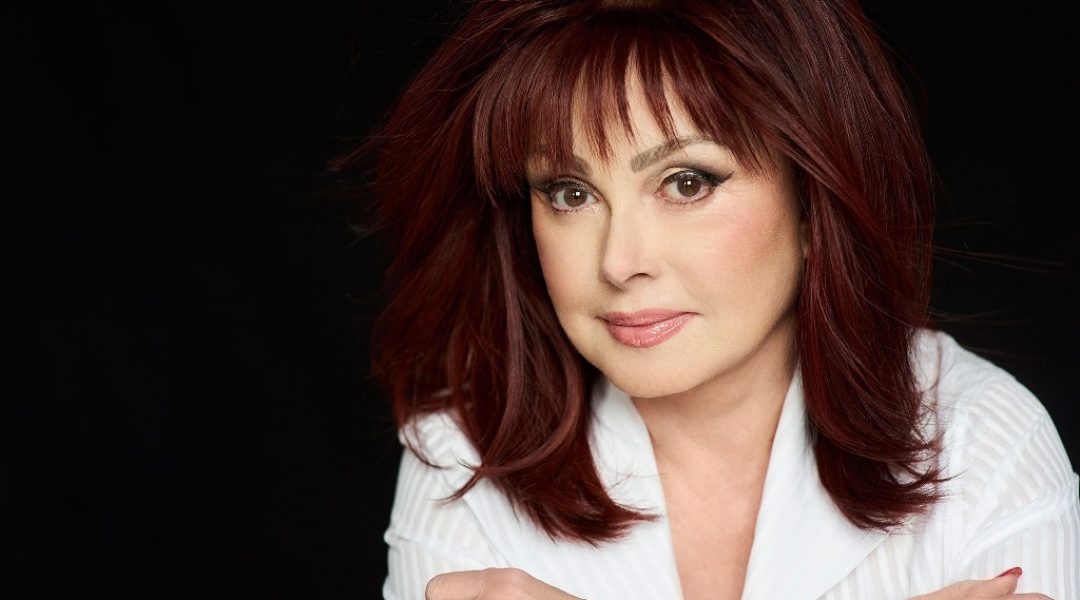Naomi Judd talks to C&I about her candid memoir, River of Time: My Descent Into Depression and How I Emerged With Hope.
With a record-breaking number of awards to her name, Naomi Judd has long been known as an influential country music artist, but little did her fans know she was struggling with an incapacitating disease. After years of suffering from depression, Judd opened up about her difficult and long journey of healing in her 2016 memoir, River of Time: My Descent Into Depression and How I Emerged With Hope, now out in paperback.
Recently, C&I caught up with Judd for an in-depth and informative interview about depression, her hope for positive change against the stigma of depression, and help for those who are suffering.
Cowboys & Indians: You’ve written several self-help books. What kind of experience and inspiration does your latest, River of Time, offer your readers?
Naomi Judd: Well, there’re 43 million folks who suffer from severe depression and anxiety disorder. I’m one. One of the things that I do is try to use whatever I’m experiencing and learning from to help others. I remember when I went to my first psychiatrist years ago with what he diagnosed as severe treatment-resistant depression. [One of the forms he gave me] said on there “occupation.” I filled out “communicator” because that’s really what I am. I write songs. I sing them on stage and I just love everyday folks.
I was at a carwash yesterday on Highway 96 here in Nashville. A fellow in overalls came up to me and whispered, “I have severe depression. I got your book and I just want to thank you.” He had tears in his eyes. I thought, This guy probably hasn’t cried in his whole adult life. He looks like one of those people. So, I was thrilled that now I can let folks know in my survivor manual. It’s what I call a survivor’s guide. I want to let folks know what depression is, how they can survive it. ... And now, I’m pretty much on the other side. I’m recovering, and I am healing. Depression is a very serious disease. ... It is not — and I emphasize not — a character flaw.
C&I: How did this journey begin, and was there a turning point?
Judd: I had been an RN in ICU before my singing career. ... I got hepatitis C when I was working as a nurse. Then about eight or nine years later when Wynona and I were out on life’s highway singing in a different city every night, I started feeling really bad. I couldn’t perform anymore, and I had to retire. Then a Mayo Clinic doctor said I had three years to live. It was a death sentence. Even though everybody else was freaked out, I knew that somehow I could survive.
While I was going through all that, for the first time in my life I started going to a psychiatrist. ... That’s when they said I had severe — not mild or moderate but severe — treatment-resistant [depression], meaning they couldn’t find anything to help me. ... But then I started thinking, You know what, all this time I had been telling people that had hep C that there is hope. Hope isn’t something that you can see or touch or feel right this minute. It’s just something that you hope for. It’s something that you step out in faith a little bit, and think, Well, maybe tomorrow will be a little bit better. So, I started listening to my own words. I started having a little bit of hope, and once that started, then I really began to start learning some about depression. I started hanging out with neuroscientists. I started studying the brain. It gave me a whole new life mission.
C&I: You’re such a natural singer and entertainer. Did this new mission come naturally for you?
Judd: I’m insatiably curious. I’ve been curious like this my whole life. ... It really came very easy for me to start calling these brilliant experts who were brain surgeons, who were like the Lieber Brain Institute, which is one of the top scientific research agencies in the world. They’re in Baltimore, Maryland, on Johns Hopkins’ Medical School campus. I started hanging out with Dan Weinberger. I actually saw a brain dissected. I also went to Huntsville, Alabama, to a fabulous research center called HudsonAlpha. ... I met with ... all these brilliant scientists that are all over the country. I studied their research. I looked at their placebo-based, double-blind clinical trials. I hung out with them personally and individually. That’s just a tiny sample of some of the work that I’ve been doing so that I can translate it for other people because not everybody is going to be as curious, and, plus, I’ve got the medical background.
C&I: What kind of practices do you do every day to deal with your depression?
Judd: The main one, when I wake up, is do an attitude adjustment on myself and realize there is always hope. ... My husband was Elvis’ bass singer. He knows a lot about the entertainment world. So we understand each other. I have my four beloved dogs that are like my children. I have a whole lot of friends, which is really powerful and important to have a support group when you’re going through anything. I live on a farm. It’s absolutely gorgeous. Ashley lives on an adjacent farm; Wynona lives on the other side. I have my girls right here, and I do the things that I know are going to help me. I get exercise. I visualize. I do aromatherapy, acupuncture, biofeedback, chiropractic, yoga, massage, medication, Pilates, guided imagery. So, I’m aware of all the possibilities.
C&I: Life at home and spending time with family — does that come up in the book?
Judd: Oh, yes, all that is explained. I go through each one of the steps. For instance, there’s a doctor — he’s world-famous; he was Clinton’s heart doctor. His name is Dr. Dean Ornish. He wrote a book called Love and Survival. ... He explained to me how they got scientific research and evidence and data on how having a support system medically can help you or hurt you. If you don’t have a support system, it can literally cause you to die seven to ten years earlier than you would have.
C&I: Is there a part of the book that you’re most proud of?
Judd: No. I’m proud of all of it. It was very hard to write because I talk about my secrets, my past, some things I’ve never told anybody about. That made me uncomfortable, but I also knew that it might help somebody else. ... I talk about it in the book, so people can see that if something horrible like that can happen to me and they see me smiling and twirling and jumping off risers on stage and that’s in my past, they can say, “Wow. That was hideous. That was unbelievable. But she went through that and look at her now.”
For more information about Judd and her books, visit her website.













